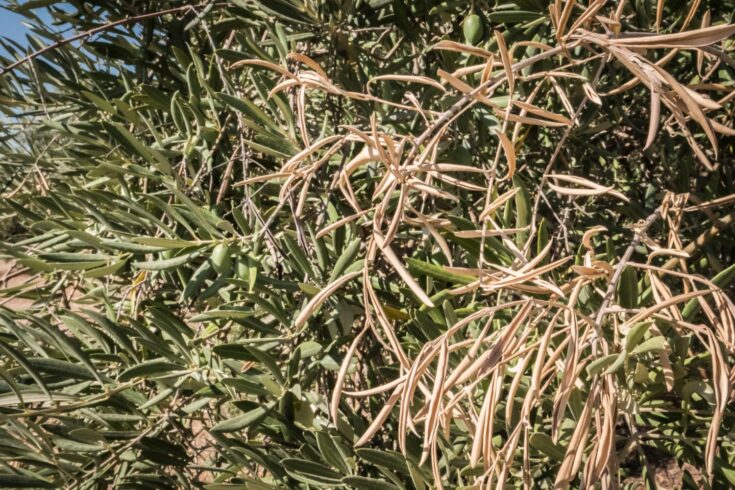Insights into the risks posed by Xylella fastidiosa will be shared in a UK awareness week themed on the devastating plant pathogen.
Xylella Awareness Week
Xylella Awareness Week is an online event drawing together:
- plant health inspectors
- the horticulture trade
- botanic gardens
- environmental groups
- members of the public.
Four workshops are planned between 2 and 5 March and will be presented in collaboration with:
- Department for Environment, Food and Rural Affairs (Defra)
- Plant Health and Seeds Inspectorate
- Horticultural Trades Association
- PlantNetwork.
BRIGIT consortium
The week is organised by the BRIGIT consortium, led by the Biotechnology and Biological Sciences Research Council (BBSRC)-funded John Innes Centre (JIC).
BRIGIT is a multidisciplinary consortium of 12 organisations led by JIC and working across:
- entomology
- plant pathology
- ecology
- epidemiology
- genomics
- molecular biology
- social sciences.
BRIGIT programme leader Professor Saskia Hogenhout of the JIC said:
BRIGIT is using a diverse range of scientific approaches to collect information about vector-borne plant pathogens.
An important part of this preparedness is to exchange knowledge generated in the project with information from stakeholder groups so that we can work together to reduce the chance of Xylella arriving and to be able to respond quickly should it be introduced.
We hope that this event will attract many interested people from industry, science and policy backgrounds – who can help share the knowledge gleaned by all parties.
The aim of the week is to share the progress made by the consortium. It will also engage with different audiences to discuss risk factors associated with the plant pathogen if it were introduced into the UK.
About Xylella
Xylella is a bacterial pathogen which was identified for the first time in Europe in Italy in 2013 and has subsequently been found in France, Spain and Portugal.
The pathogen, which is spread by insect vectors, infects more than 500 plant, shrub and tree species, causing leaf scorch, wilt, die-back and in some cases plant death.
There is no known cure for the disease which has devastated olive tree populations in Italy.
Xylella is not currently present in the UK but its introduction would have a damaging impact on:
- natural habitats
- forestry
- horticulture industries.
Further information
BRIGIT is funded by UK Research and Innovation through the Strategic Priorities Fund, by a grant from BBSRC, with support from Defra and the Scottish Government.
Stricter new rules on UK plant imports designed to guard against Xylella have been announced by Defra and will take effect on 4 March.
Top image: Olive trees infected by Xylella fastidiosa (credit: digicomphoto/GettyImages)

